
The extraordinary trio of three masterful players from different generations who have broken with convention while playing within free forms--Evan Parker on sax; Joe Morris on guitar; and Nate Wooley on trumpet--performing live at Firehouse 12 in Connecticut, 2014.
In Stock
Quantity in Basket: None
Log In to use our Wish List
Shipping Weight: 3.00 units
EU & UK Customers:
Discogs.com can handle your VAT payments
So please order through Discogs
Sample The Album:
Evan Parker-tenor saxophone, soprano saxophone
Joe Morris-guitar
Nate Wooley-trumpet
Click an artist name above to see in-stock items for that artist.
UPC: 560906300352
Label: Clean Feed
Catalog ID: CF335
Squidco Product Code: 20997
Format: CD
Condition: New
Released: 2015
Country: Portugal
Packaging: Cardstock Gatefold Sleeve
Recorded live in concert at Firehouse 12, New Haven, Connecticut on September 19, 2014 by Nick Lloyd.
"There are two currents of thought concerning the relationship between jazz and free improvisation - one includes the second in the domain of the first and the other arguments that improvised music is now an independent field, generally with no idiomatic jazz ties. This super trio with Evan Parker, Joe Morris and Nate Wooley seems to fit in the first thesis. Parker was one of the pioneers of the European freely Improvised scene, but his connections with free jazz were never lost and the influence of someone like John Coltrane in his sax playing became more and more evident along the years. Morris is usually pointed as the only frontline guitarist free jazz have since Sonny Sharrock, but truth is he developed some fully improvised music, detaching himself from one of the characteristics of the jazz idiom, the mix of improvisation and written composition. Trumpeter Wooley plays straight-ahead jazz, improvises with no structures previously established and is a notorious figure of the experimental circuit. Together, they offer us what they have in common: exploratory improvisation with a jazz format. And they do it masterly."-Cleanfeed

The Squid's Ear!
Artist Biographies
• Show Bio for Evan Parker "Evan Parker was born in Bristol in 1944 and began to play the saxophone at the age of 14. Initially he played alto and was an admirer of Paul Desmond; by 1960 he had switched to tenor and soprano, following the example of John Coltrane, a major influence who, he would later say, determined "my choice of everything". In 1962 he went to Birmingham University to study botany but a trip to New York, where he heard the Cecil Taylor trio (with Jimmy Lyons and Sunny Murray), prompted a change of mind. What he heard was "music of a strength and intensity to mark me for life ... l came back with my academic ambitions in tatters and a desperate dream of a life playing that kind of music - 'free jazz' they called it then." Parker stayed in Birmingham for a time, often playing with pianist Howard Riley. In 1966 he moved to London, became a frequent visitor to the Little Theatre Club, centre of the city's emerging free jazz scene, and was soon invited by drummer John Stevens to join the innovative Spontaneous Music Ensemble which was experimenting with new kinds of group improvisation. Parker's first issued recording was SME's 1968 Karyobin, with a line-up of Parker, Stevens, Derek Bailey, Dave Holland and Kenny Wheeler. Parker remained in SME through various fluctuating line-ups - at one point it comprised a duo of Stevens and himself - but the late 1960s also saw him involved in a number of other fruitful associations. He began a long-standing partnership with guitarist Bailey, with whom he formed the Music Improvisation Company and, in 1970, co-founded Incus Records. (Tony Oxley, in whose sextet Parker was then playing, was a third co-founder; Parker left Incus in the mid-1980s.) Another important connection was with the bassist Peter Kowald who introduced Parker to the German free jazz scene. This led to him playing on Peter Brötzmann's 1968 Machine Gun, Manfred Schoof's 1969 European Echoes and, in 1970, joining pianist Alex von Schlippenbach and percussionist Paul Lovens in the former's trio, of which he is still a member: their recordings include Pakistani Pomade, Three Nails Left, Detto Fra Di Noi, Elf Bagatellen and Physics. Parker pursued other European links, too, playing in the Pierre Favre Quartet (with Kowald and Swiss pianist Irene Schweizer) and in the Dutch Instant Composers Pool of Misha Mengelberg and Han Bennink. The different approaches to free jazz he encountered proved both a challenging and a rewarding experience. He later recalled that the German musicians favoured a "robust, energy-based thing, not to do with delicacy or detailed listening but to do with a kind of spirit-raising, a shamanistic intensity. And l had to find a way of surviving in the heat of that atmosphere ... But after a while those contexts became more interchangeable and more people were involved in the interactions, so all kinds of hybrid musics came out, all kinds of combinations of styles." A vital catalyst for these interactions were the large ensembles in which Parker participated in the 1970s: Schlippenbach's Globe Unity Orchestra, Chris McGregor's Brotherhood of Breath, Barry Guy's London Jazz Composers Orchestra (LJCO) and occasional big bands led by Kenny Wheeler. In the late 70s Parker also worked for a time in Wheeler's small group, recording Around Six and, in 1980, he formed his own trio with Guy and LJCO percussionist Paul Lytton (with whom he had already been working in a duo for nearly a decade). This group, together with the Schlippenbach trio, remains one of Parker's top musical priorities: their recordings include Tracks, Atlanta, Imaginary Values, Breaths and Heartbeats, The Redwood Sessions and At the Vortex. In 1980, Parker directed an Improvisers Symposium in Pisa and, in 1981, he organised a special project at London's Actual Festival. By the end of the 1980s he had played in most European countries and had made various tours to the USA, Canada, Australia, New Zealand and Japan. ln 1990, following the death of Chris McGregor, he was instrumental in organising various tributes to the pianist and his fellow Blue Notes; these included two discs by the Dedication Orchestra, Spirits Rejoice and lxesa. Though he has worked extensively in both large and small ensembles, Parker is perhaps best known for his solo soprano saxophone music, a singular body of work that in recent years has centred around his continuing exploration of techniques such as circular breathing, split tonguing, overblowing, multiphonics and cross-pattern fingering. These are technical devices, yet Parker's use of them is, he says, less analytical than intuitive; he has likened performing his solo work to entering a kind of trance-state. The resulting music is certainly hypnotic, an uninterrupted flow of snaky, densely-textured sound that Parker has described as "the illusion of polyphony". Many listeners have indeed found it hard to credit that one man can create such intricate, complex music in real time. Parker's first solo recordings, made in 1974, were reissued on the Saxophone Solos CD in 1995; more recent examples are Conic Sections and Process and Reality, on the latter of which he does, for the first time, experiment with multi-tracking. Heard alone on stage, few would disagree with writer Steve Lake that "There is, still, nothing else in music - jazz or otherwise - that remotely resembles an Evan Parker solo concert." While free improvisation has been Parker's main area of activity over the last three decades, he has also found time for other musical pursuits: he has played in 'popular' contexts with Annette Peacock, Scott Walker and the Charlie Watts big band; he has performed notated pieces by Gavin Bryars, Michael Nyman and Frederic Rzewski; he has written knowledgeably about various ethnic musics in Resonance magazine. A relatively new field of interest for Parker is improvising with live electronics, a dialogue he first documented on the 1990 Hall of Mirrors CD with Walter Prati. Later experiments with electronics in the context of larger ensembles have included the Synergetics - Phonomanie III project at Ullrichsberg in 1993 and concerts by the new EP2 (Evan Parker Electronic Project) in Berlin, Nancy and at the 1995 Stockholm Electronic Music Festival where Parker's regular trio improvised with real-time electronics processed by Prati, Marco Vecchi and Phillip Wachsmann. "Each of the acoustic instrumentalists has an electronic 'shadow' who tracks him and feeds a modified version of his output back to the real-time flow of the music." The late 80s and 90s brought Parker the chance to play with some of his early heroes. He worked with Cecil Taylor in small and large groups, played with Coltrane percussionist Rashied Ali, recorded with Paul Bley: he also played a solo set as support to Ornette Coleman when Skies of America received its UK premiere in 1988. The same period found Parker renewing his acquaintance with American colleagues such as Anthony Braxton, Steve Lacy and George Lewis, with all of whom he had played in the 1970s (often in the context of London's Company festivals). His 1993 duo concert with Braxton moved John Fordham in The Guardian to raptures over "saxophone improvisation of an intensity, virtuosity, drama and balance to tax the memory for comparison". Parker's 50th birthday in 1994 brought celebratory concerts in several cities, including London, New York and Chicago. The London performance, featuring the Parker and Schlippenbach trios, was issued on a highly-acclaimed two-CD set, while participants at the American concerts included various old friends as well as more recent collaborators in Borah Bergman and Joe Lovano. The NYC radio station WKCR marked the occasion by playing five days of Parker recordings. 1994 also saw the publication of the Evan Parker Discography, compiled by ltalian writer Francesco Martinelli, plus chapters on Parker in books on contemporary musics by John Corbett and Graham Lock. Parker's future plans involve exploring further possibilities in electronics and the development of his solo music. They also depend to a large degree on continuity of the trios, of the large ensembles, of his more occasional yet still long-standing associations with that pool of musicians to whose work he remains attracted. This attraction, he explained to Coda's Laurence Svirchev, is attributable to "the personal quality of an individual voice". The players to whom he is drawn "have a language which is coherent, that is, you know who the participants are. At the same time, their language is flexible enough that they can make sense of playing with each other ... l like people who can do that, who have an intensity of purpose." " ^ Hide Bio for Evan Parker • Show Bio for Joe Morris "Joe Morris was born in New Haven, Connecticut on September 13, 1955. At the age of 12 he took lessons on the trumpet for one year. He started on guitar in 1969 at the age of 14. He played his first professional gig later that year. With the exception of a few lessons he is self-taught. The influence of Jimi Hendrix and other guitarists of that period led him to concentrate on learning to play the blues. Soon thereafter his sister gave him a copy of John Coltrane's OM, which inspired him to learn about Jazz and New Music. From age 15 to 17 he attended The Unschool, a student-run alternative high school near the campus of Yale University in downtown New Haven. Taking advantage of the open learning style of the school he spent most of his time day and night playing music with other students, listening to ethnic folk, blues, jazz, and classical music on record at the public library and attending the various concerts and recitals on the Yale campus. He worked to establish his own voice on guitar in a free jazz context from the age of 17. Drawing on the influence of Coltrane, Miles Davis, Cecil Taylor,Thelonius Monk, Ornette Coleman as well as the AACM, BAG, and the many European improvisers of the '70s. Later he would draw influence from traditional West African string music, Messian, Ives, Eric Dolphy, Jimmy Lyons, Steve McCall and Fred Hopkins. After high school he performed in rock bands, rehearsed in jazz bands and played totally improvised music with friends until 1975 when he moved to Boston. Between 1975 and 1978 he was active on the Boston creative music scene as a soloist as well as in various groups from duos to large ensembles. He composed music for his first trio in 1977. In 1980 he traveled to Europe where he performed in Belgium and Holland. When he returned to Boston he helped to organize the Boston Improvisers Group (BIG) with other musicians. Over the next few years through various configurations BIG produced two festivals and many concerts. In 1981 he formed his own record company, Riti, and recorded his first LpWraparound with a trio featuring Sebastian Steinberg on bass and Laurence Cook on drums. Riti records released four more LPs and CDs before 1991. Also in 1981 he began what would be a six year collaboration with the multi-instrumentalist Lowell Davidson, performing with him in a trio and a duo. During the next few years in Boston he performed in groups which featured among others; Billy Bang, Andrew Cyrille, Peter Kowald, Joe McPhee, Malcolm Goldstein, Samm Bennett, Lawrence "Butch" Morris and Thurman Barker. Between 1987 and 1989 he lived in New York City where he performed at the Shuttle Theater, Club Chandelier, Visiones, Inroads, Greenwich House, etc. as well as performing with his trio at the first festival Tea and Comprovisation held at the Knitting Factory. In 1989 he returned to Boston. Between 1989 and 1993 he performed and recorded with his electric trio Sweatshop and electric quartet Racket Club. In 1994 he became the first guitarist to lead his own session in the twenty year history of Black Saint/Soulnote Records with the trio recording Symbolic Gesture. Since 1994 he has recorded for the labels ECM, Hat Hut, Leo, Incus, Okka Disc, Homestead, About Time, Knitting Factory Works, No More Records, AUM Fidelity and OmniTone and Avant. He has toured throughout the U.S., Canada and Europe as a solo and as a leader of a trio and a quartet. Since 1993 he has recorded and/or performed with among others; Matthew Shipp, William Parker, Joe and Mat Maneri, Rob Brown, Raphe Malik, Ivo Pearlman, Borah Bergman, Andrea Parkins, Whit Dickey, Ken Vandermark, DKV Trio, Karen Borca, Eugene Chadborne, Susie Ibarra, Hession/Wilkinson/Fell, Roy Campbell Jr., John Butcher, Aaly Trio, Hamid Drake, Fully Celebrated Orchestra and others. He began playing acoustic bass in 2000 and has since performed with cellist Daniel Levin, Whit Dickey and recorded with pianist Steve Lantner. He has lectured and conducted workshops trroughout the US and Europe. He is a former member of the faculty of Tufts University Extension College and is currently on the faculty at New England Conservatory in the jazz and improvisation department. He was nominated as Best Guitarist of the year 1998 and 2002 at the New York Jazz Awards." ^ Hide Bio for Joe Morris • Show Bio for Nate Wooley "Nate Wooley was born in 1974 in Clatskanie, Oregon, a town of 2,000 people in the timber country of the Pacific Northwestern corner of the U.S. He began playing trumpet professionally with his father, a big band saxophonist, at the age of 13. His time in Oregon, a place of relative quiet and slow time reference, instilled in Nate a musical aesthetic that has informed all of his music making for the past 20 years, but in no situation more than his solo trumpet performances. Nate moved to New York in 2001, and has since become one of the most in-demand trumpet players in the burgeoning Brooklyn jazz, improv, noise, and new music scenes. He has performed regularly with such icons as John Zorn, Anthony Braxton, Eliane Radigue, Ken Vandermark, Fred Frith, Evan Parker, and Yoshi Wada, as well as being a collaborator with some of the brightest lights of his generation like Chris Corsano, C. Spencer Yeh, Peter Evans, and Mary Halvorson. Wooley's solo playing has often been cited as being a part of an international revolution in improvised trumpet. Along with Peter Evans and Greg Kelley, Wooley is considered one of the leading lights of the American movement to redefine the physical boundaries of the horn, as well as demolishing the way trumpet is perceived in a historical context still overshadowed by Louis Armstrong. A combination of vocalization, extreme extended technique, noise and drone aesthetics, amplification and feedback, and compositional rigor has led one reviewer to call his solo recordings "exquisitely hostile". In the past three years, Wooley has been gathering international acclaim for his idiosyncratic trumpet language. Time Out New York has called him "an iconoclastic trumpeter", and Downbeat's Jazz Musician of the Year, Dave Douglas has said, "Nate Wooley is one of the most interesting and unusual trumpet players living today, and that is without hyperbole". His work has been featured at the SWR JazzNow stage at Donaueschingen, the WRO Media Arts Biennial in Poland, Kongsberg, North Sea, Music Unlimited, and Copenhagen Jazz Festivals, and the New York New Darmstadt Festivals. In 2011 he was an artist in residence at Issue Project Room in Brooklyn, NY and Cafe Oto in London, England. In 2013 he performed at the Walker Art Center as a featured solo artist. Nate is the curator of the Database of Recorded American Music (www.dramonline.org) and the editor-in-chief of their online quarterly journal Sound American (www.soundamerican.org) both of which are dedicated to broadening the definition of American music through their online presence and the physical distribution of music through Sound American Records. He also runs Pleasure of the Text which releases music by composers of experimental music at the beginnings of their careers in rough and ready mediums." ^ Hide Bio for Nate Wooley
11/18/2024
Have a better biography or biography source? Please Contact Us so that we can update this biography.
11/18/2024
Have a better biography or biography source? Please Contact Us so that we can update this biography.
11/18/2024
Have a better biography or biography source? Please Contact Us so that we can update this biography.
Track Listing:
1. Temple Elm 9:27
2. Orange George 13:37
3. Wall Crown 7:48
4. Grove State 12:01
5. High Center 6:27
6. Green 7:19
Improvised Music
Jazz
NY Downtown & Metropolitan Jazz/Improv
London & UK Improv & Related Scenes
Trio Recordings
Clean Feed
Parker, Evan
Nate Wooley
Staff Picks & Recommended Items
Search for other titles on the label:
Clean Feed.

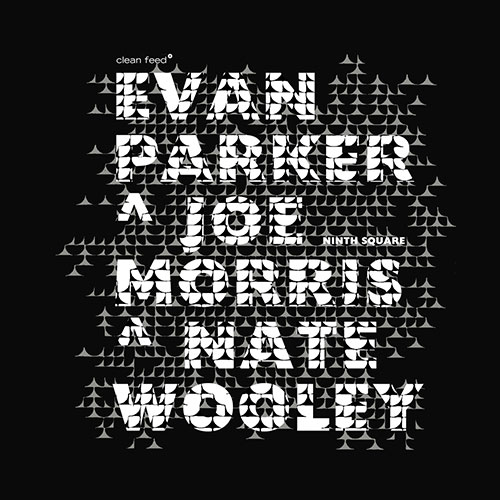
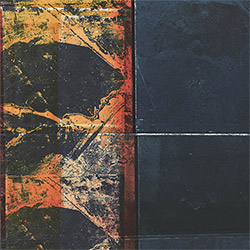
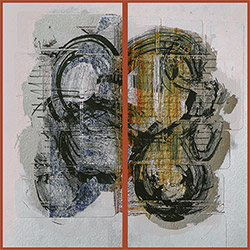


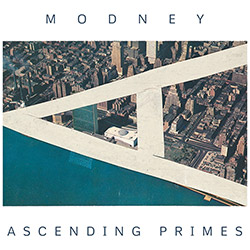




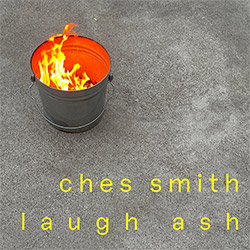


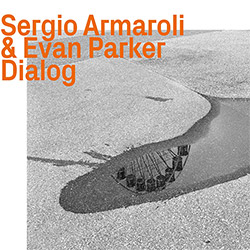
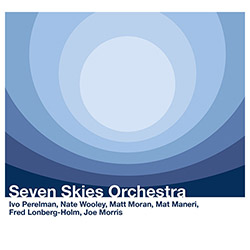
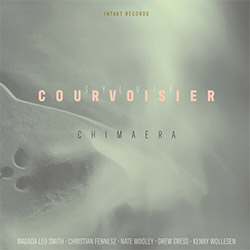
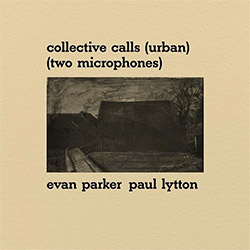


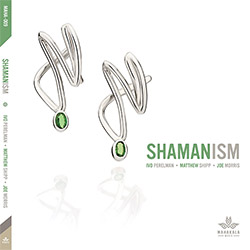


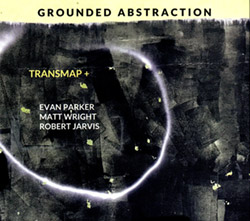
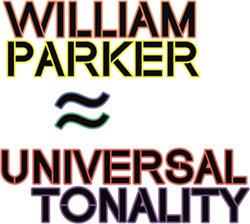
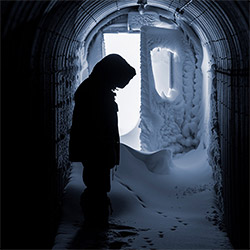














![Barker / Parker / Irabagon: Bakunawa [VINYL]](https://www.teuthida.com/productImages/misc4/35533.jpg)
![Blaser, Samuel / Marc Ducret / Peter Bruun: Dark Was The Night, Cold Was The Ground [VINYL 10-inch]](https://www.teuthida.com/productImages/misc4/35492.jpg)










![Warren, Kenny (Warren / Hoffman / Ellman): Sweet World [VINYL]](https://www.teuthida.com/productImages/misc4/35451.jpg)


![Blake, Ran / Dave Knife Fabris: Live Amsterdam 2006, First Visit [CD + POSTCARDS]](https://www.teuthida.com/productImages/misc4/35275.jpg)
![Sanna, Claudio: Compositori Sardi Contemporanei II [2 CDs]](https://www.teuthida.com/productImages/misc4/35317.jpg)












![Nevai, Nandor: <<The PRICE of FRONTIER>> Book 1: FULK [BOOK + 4 CDs]](https://www.teuthida.com/productImages/misc4/35464.jpg)
![Nevai, Nandor: <<The PRICE of FRONTIER>> Book 2: MARTIAL [BOOK + 4 CDs]](https://www.teuthida.com/productImages/misc4/35465.jpg)
![Nevai, Nandor: <<The PRICE of FRONTIER>> Book 3: JASSOM [BOOK + 4 CDs]](https://www.teuthida.com/productImages/misc4/35466.jpg)
![Nevai, Nandor: <<The PRICE of FRONTIER>> Book 4: HARD-WON [BOOK + 4 CDs]](https://www.teuthida.com/productImages/misc4/35467.jpg)






![DNS: Taking Big Bites Of The Khandas Three Cafes Deep [2 CDs]](https://www.teuthida.com/productImages/misc4/35334.jpg)




![Cleaver, Gerald: The Process [VINYL]](https://www.teuthida.com/productImages/misc4/34966.jpg)




![Alva Noto: HYbr:ID II [VINYL 2 LPs]](https://www.teuthida.com/productImages/misc4/35201.jpg)

![Baron, Derek / Luke Martin: Distinct and Concealed [CASSETTE + DOWNLOAD]](https://www.teuthida.com/productImages/misc4/35079.jpg)

![Lyle, Erica Dawn : Colonial Motels [CASSETTE + DOWNLOAD]](https://www.teuthida.com/productImages/misc4/35080.jpg)







![Alva Noto: HYbr:ID III [VINYL 2 LPs]](https://www.teuthida.com/productImages/misc4/35011.jpg)
![Kubisch, Christina / Trondheim Voices: Stromsanger 2022 For Six Voices And Electromagnetic Waves [VINYL]](https://www.teuthida.com/productImages/misc4/34628.jpg)








![Zurria, Manuel: Fame di Vento [3 CDs]](https://www.teuthida.com/productImages/misc4/35167.jpg)

![Granberg, Magnus / Nattens Inbrott / Skogen: Holde Traume, Kehret Wieder! [2 CDs]](https://www.teuthida.com/productImages/misc4/35038.jpg)
![Frey, Jurg: Outermost Melodie [2 CDs]](https://www.teuthida.com/productImages/misc4/35039.jpg)

![Pavone, Jessica: Reverse Bloom [VINYL]](https://www.teuthida.com/productImages/misc4/34895.jpg)












![Elephant9 with Terje Rypdal: Catching Fire [VINYL 2 LPs]](https://www.teuthida.com/productImages/misc4/35355.jpg)
![Deerlady (Obomsawin, Mali / Magdalena Abrego): Greatest Hits [VINYL]](https://www.teuthida.com/productImages/misc4/34876.jpg)




![Haino, Keiji: Black Blues [2 CDs]](https://www.teuthida.com/productImages/misc4/35109.jpg)



![Surplus 1980: Illusion of Consistency [CD]](https://www.teuthida.com/productImages/misc4/35069.jpg)
![Staiano, Moe: Away Towards the Light [VINYL + DOWNLOAD]](https://www.teuthida.com/productImages/misc4/35037.jpg)




![Caveira (Gomes / Sousa / Abras / Ferrandini): Ficar Vivo [VINYL]](https://www.teuthida.com/productImages/misc4/34643.jpg)
![Gregg, J. J. / David Van Auken: Lunar Prairie [CD w/ DOWNLOAD]](https://www.teuthida.com/productImages/misc4/34611.jpg)

![Coultrain: Mundus [VINYL]](https://www.teuthida.com/productImages/misc4/32439.jpg)
![Mattin: Songbook #6 [VINYL]](https://www.teuthida.com/productImages/misc4/27317.jpg)
![Punkappella: Wake Up [7-inch VINYL]](https://www.teuthida.com/productImages/misc4/17519.jpg)
![Residents, The: WARNING: UNiNC.: Live And Experimental Recordings 1971-1972 [VINYL 2 LPs]](https://www.teuthida.com/productImages/misc4/31521.jpg)
![Coultrain: Phantasmagoria [VINYL]](https://www.teuthida.com/productImages/misc4/30142.jpg)
![Lennon, Sean Ono: Asterisms [VINYL]](https://www.teuthida.com/productImages/misc4/34517.jpg)

![Rotem Geffen: The Night Is The Night [VINYL]](https://www.teuthida.com/productImages/misc4/34631.jpg)
![Coley, Byron: Dating Tips for Touring Bands [VINYL]](https://www.teuthida.com/productImages/misc4/17906.jpg)

![Lost Kisses: My Life is Sad & Funny [DVD]](https://www.teuthida.com/productImages/misc4/lostKissesDVD.jpg)